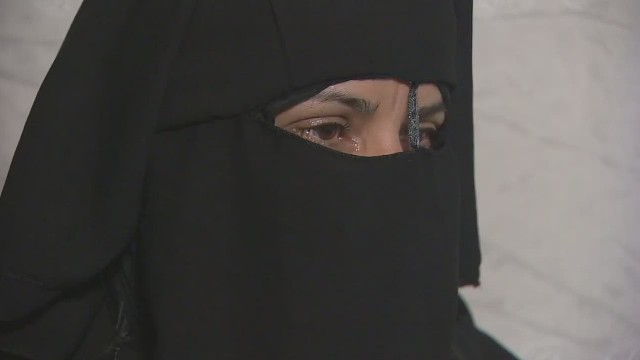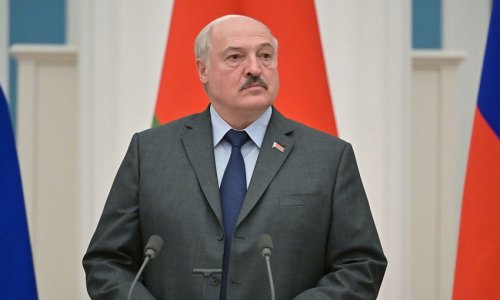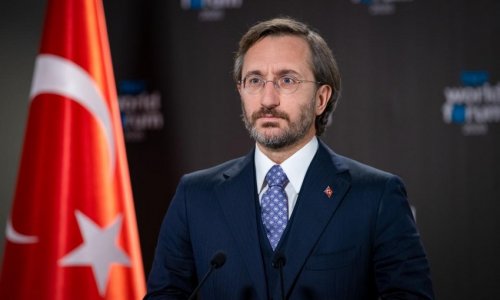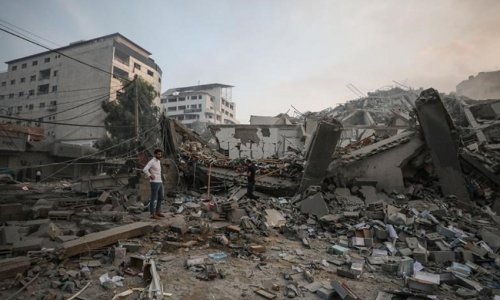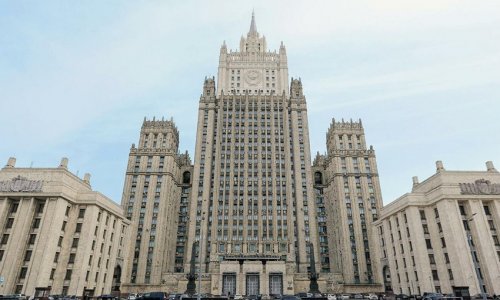"Every little girl dreams of that white dress, of her wedding night," says Hanan, her voice starting to waver. "I have been deprived of that."
Hanan is not the woman's real name. Though now in Turkey, not her native Syria, the 26-year-old is still so terrified and traumatized that she has not left her relatives' house once since she arrived three weeks ago.
Hanan says she was forced to marry an ISIS fighter in exchange for her father's freedom.
Her large, dark brown eyes, all that is visible under her niqab, well with tears. A sob betrays a depth of pain that even the suffocating black fabric of her veil cannot mask.
"I am sorry, but when I remember ... ," she says. Her voice fades as she slightly lifts the veil to wipe her face.
When ISIS militants swept through her city in eastern Syria, Hanan says, they indiscriminately detained anyone suspected of fighting them.
Hanan's brother had been killed in previous clashes. Her father had kept his son's AK-47 assault rifle in memory of him.
"When ISIS came in, someone told them that my father had a weapon, so they detained him," Hanan says.
"We had no one. It was just me, my two sisters and my mother left. So we went to the Sharia police headquarters, where they keep the detainees."
'I had to accept'
The Sharia police mercilessly patrol the streets, handing out punishment and detaining individuals accused of breaking their interpretation of Sharia, or Islamic, law. Women are not supposed to travel unaccompanied by a male relative.
"When we went, it was just me and my mother," Hanan recalls. "The Sharia police stopped and harassed us numerous times, saying, 'Where is your male guardian?' We said we only have one and we are going to see him at the headquarters."
Hanan and her mother pleaded for his release.
"After a bit my mother came and said to me, they will release him if you marry the head of the Sharia police. His name is Abu Mohammed al-Iraqi. My father's life for his hand in marriage. We have no one but him; I had to accept."
Abu Mohammed al-Iraqi was the ISIS fighter's pseudonym. Hanan never even knew his real name.
She describes him as tall, thin, dark-skinned, with hair grown out to his shoulders and a long beard.
She speaks haltingly of their first night together when she says he forced himself on her. She initially tried to struggle, she says, but then submitted to her fate.
"There was no emotion. I did not feel that he had any emotions. I felt like he just wanted to take what was his right, like he had to."
'He slept with a gun next to his head'
Hanan says he locked her inside in the house and only allowed her to use his phone, in his presence, to call her parents. He did the shopping. The two barely spoke beyond the customary greetings.
She was his prisoner, his maid, and his sex slave.
She also says he seemed consumed with paranoia.
"He never felt safe. He slept with a gun next to his head. If someone knocked on the door, he only answered with his gun in his hand and his face covered. He didn't trust anyone."
Al-Iraqi was in charge of enforcing Sharia law, which also bans smoking. Yet, she says, he kept a stash of cigarettes in his house.
At times, he would disappear for days, leaving her trapped. Then, a month after they were married, he was killed.
Hanan was sent back home to her parents.
"I felt like a child that returned to her mother's embrace. But something in me was lost, something I can't get back," she says softly. "My mother had only tears to express her emotions. My father the same. Because I sacrificed for him."
Threat of another marriage
But Hanan still was not safe, nor was she free. She received news that the ISIS emir, or local leader, wanted to see her.
"I said I can't go, I can't meet anyone. So they sent me the women," she says.
She describes the female envoys as non-Syrian. One she says was from Tunisia; the other spoke a foreign language she did not understand, possibly a European one.
She says they were authoritative, abrupt and unsympathetic, and seemed to have no qualms about the role they were playing. The meeting lasted 10 minutes.
"They wanted me to marry another fighter. They said I can't stay without a husband."
It was too much.
Hanan's parents fled to an area controlled by the Syrian regime. Hanan, using routes she won't disclose for security reasons, managed to get to relatives in Turkey.
"I don't know how many like me he had, I don't know how many like me there are," she says of the husband forced on her. "They take whatever they want. They marry and divorce at will."
An activist group named Raqqa Is Being Slaughtered Silently has documented hundreds of cases of women being forced into marriage with ISIS fighters. About a third of them are under the age of 18.
Hanan says that once a girl turns 13, she will rarely leave the house. She remains imprisoned by fear of becoming the next bride, the next slave, the next prize claimed by ISIS under the guise of "marriage."
Hanan says her experience has shredded her soul and stripped her of her dignity.
"Even now I cannot grasp what I have been through, that I went through this. I am destroyed."
(CNN)
ANN.Az
Follow us !

